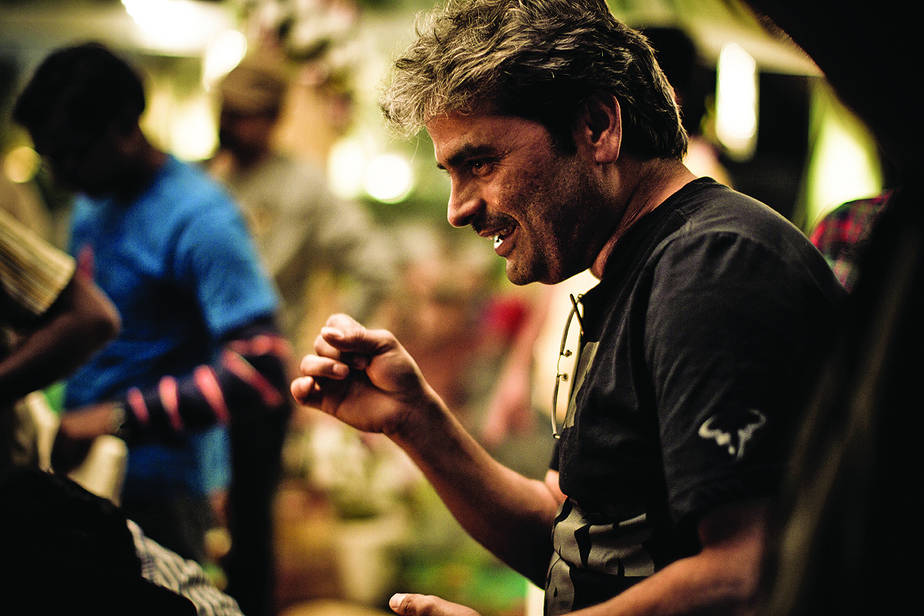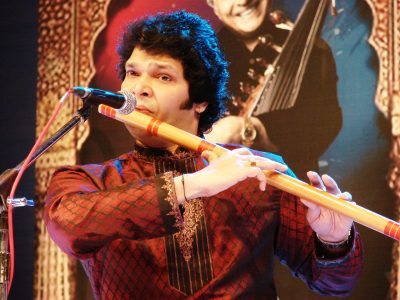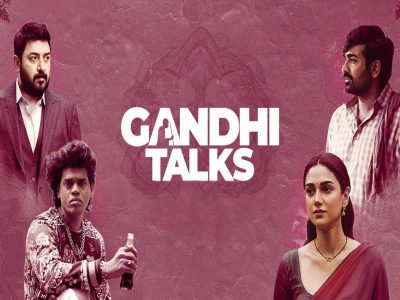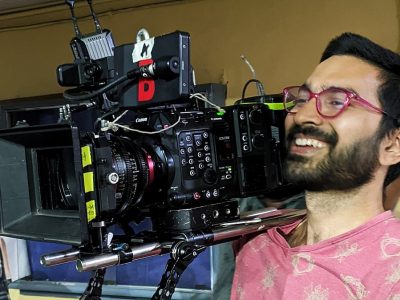A young boy from Meerut had a dream of becoming a famous cricketer. Unfortunately, (or maybe fortunately), when studying at Delhi University, his thumb broke just a day before an inter-university tournament. Soon after, he lost his father. These two developments made him give up his dream of playing cricket for the country.
Clearly, destiny had other plans for him. Today, Vishal Bhardwaj is one of India’s greatest filmmakers. His films are part of studies and research. Every actor in the country wishes to work with him. He has won numerous awards. One of his fortes is the power to portray violence poetically. He is an ace at adapting Shakespeare’s immortal plays and crafting them brilliantly on an Indian background.
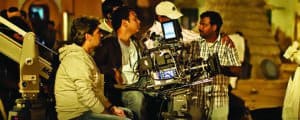
Till now, Bhardwaj has directed nine feature films, written 14 screenplays, composed music for almost all of these and produced many of them. He is a man of great intellect and knowledge. But when you meet him in person, there is in no way you will feel intimidated. His soft-spoken, polite and friendly nature will surely make you comfortable around him. His latest film Rangoon might not have done well at the box office, but that is just a minor setback in his otherwise glorious career. After completing his trilogy of Shakespeare’s tragedy with Maqbool, Omkara and Haider, he is all set to go back to his muse with the adaptation of Twelfth Night.
On a lazy Sunday evening, he sits down to talk about exploring different genres, the changes in the Indian film industry, his love for TV series and why he is not comfortable with the idea of penning down his autobiography.
From children’s films to Shakespearean tragedies, from capers to romantic movies – you have made films in different genres. What makes you so eclectic?
I do films on different genres because it gives me the opportunity to explore all sides of myself. One may like action movies like Batman, Superman, at the same time one may like series like McBride, Narcos, Fargo. The same person may like Satyajit Ray movies as well. Also, there are so many things you are carrying within you. One person can have so many varied personalities, so you want to explore all that. That is why I try out different genres. And I do not want to get stuck to one genre ever. I like to look into all genres of films, of stories and of life.
There was a touch of Broadway-style musical in your last film Rangoon. Recently, filmmaker Anurag Basu attempted this genre with his film Jagga Jasoos. But still there’s a dearth of such musicals in Bollywood. What is the reason behind this?
The reason why Bollywood cannot have Broadway-style musicals is because we make musical films. In a normal Hollywood or European film, they don’t use music at all. Thus, when they use music they make it completely musical and they remain very honest to that. Then they take all kinds of liberties. Here, we have been using music in a normal dramatic film also.
What are the changes you have witnessed in the Indian film industry in the last decade?
There has been a huge change. We have travelled from the North Pole to the South Pole. Earlier, it was very difficult to make films with content or films without songs. Also, getting finance or a theatrical release was difficult. Now, I feel we are in the best of times. But still we should have more multiplexes. In India, there are more films and less number of screens. If we could have more screens, then more films can be screened. But we are definitely in our best era as far as creativity is concerned. Today, a film like Newton is appreciated, whereas a film like Bajrangi Bhaijaan is also a superhit!
You said once that it is the ‘filmmaker who is exposed emotionally onscreen’. In a way, does it also imply that the characters of the film in some way bear resemblance with the filmmaker’s personality? Or do the characters of the film reflect the filmmaker?
More than the character, you can find filmmaker’s resemblance with the theme of the film or in the manifestations of that character. Because a filmmaker might take any character which he is not, but what happens with the character or how the character develops relationships with his/her surrounding and others, all these manifestations are what the filmmaker is.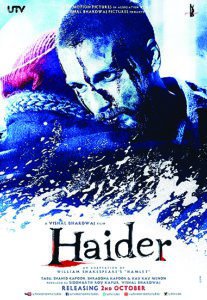
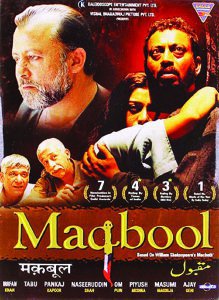
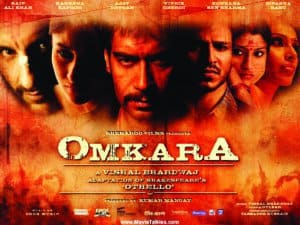
Recently, your first book Nude came out, where you seem to bare your soul through poems. So, do you have any plan of penning down your autobiography?
No, I have no plans of writing my autobiography because I do not want to make my personal life public. I am a very private person. So as of now I don’t intend to write one, but maybe 20 years later or so I might. For now, I would like to keep my memories intact with me.
Any recent film that has impressed you?
I think Newton was really good. Court was also a good movie. I actually watch very few movies. I watch TV series more. I liked Fargo and Peaky Blinders among the recent ones. A TV series I absolutely loved was Black Mirror. That is my favourite. They make great episodes and each story is independent, so they are like separate films. Great films are being made on the digital platform.
Any actor’s performance in a recent film that has impressed you?
I loved Zaira Wasim in Dangal, she was fantastic! I also loved Aamir’s performance in Dangal. Even in Secret Superstar, Zaira’s performance was great. Then the guy who played her father Raj Arjun, he is also a great actor. He was beautiful in the film. Meher Vij — who played Zaira’s mother in the film — her acting was commendable. It was great casting, I must say.
If you had to watch any one movie for the rest of your life, what would it be? Or let’s just say one movie which is your all-time favourite?
Well, there are so many. It is tough to choose any one. But still, if I had to, I would maybe say The Godfather, which is an all-time classic. Then there is Kieslowski’s Three Colors trilogy – Blue, Red and White. There’s another film of Kieslowski which is my favourite: The Double Life of Veronique. That is a great film. Everyone should watch these films.
What message do you want to give aspiring filmmakers, those who dream of making good films?
My message to them would be that they should remain passionate about filmmaking, and there should be madness! Unless and until you are desperate to tell a story, as if it is a question of life and death, you cannot make films. That madness, that passion—should be there in you.

